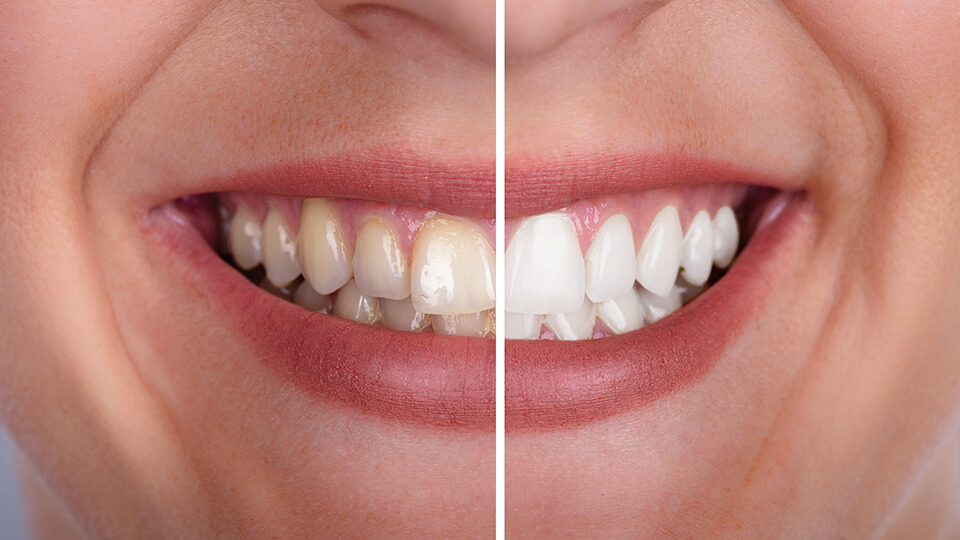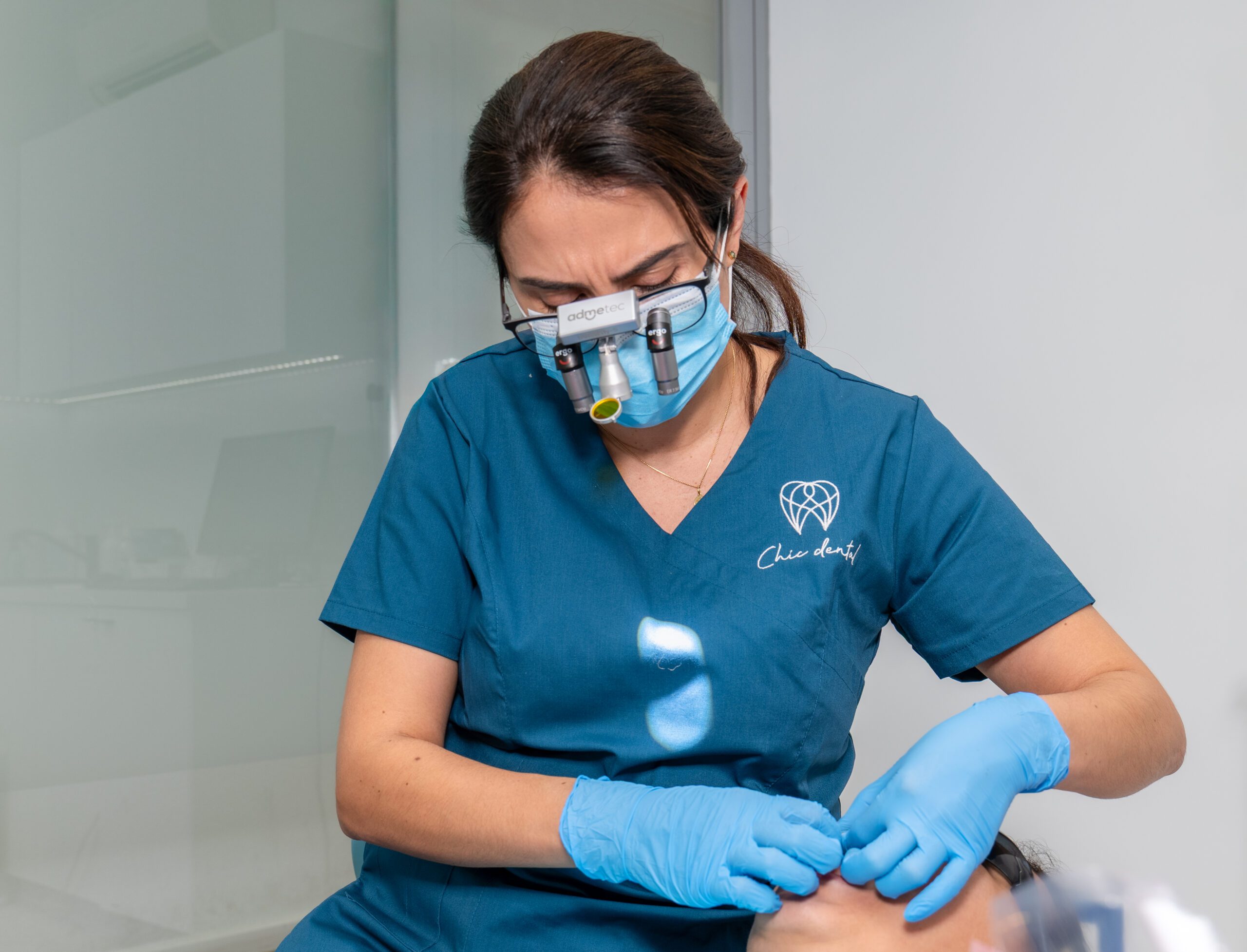


Regular dental checkups and cleans have evolved to combine thorough examination with advanced cleaning techniques, ensuring your oral health is maintained at the highest standard. Today’s preventive care offers benefits that make it one of the most effective ways to protect your teeth and gums, supporting both a healthy mouth and a confident smile.
Early detection of cavities, gum disease, or oral issues can save you from more extensive treatment later.
Professional cleaning removes plaque and tartar that brushing alone can’t, keeping your teeth sparkling and fresh.
Oral health is linked to heart health, diabetes management, and more—regular checkups support your whole-body wellness.
Routine care helps prevent gingivitis and periodontitis, protecting your gums and jawbone.
X-rays and exams can reveal issues that aren’t visible to the naked eye, allowing for timely intervention.
Preventive care is always easier, less invasive, and more cost-effective than fixing advanced dental problems.
Your path to a healthier, brighter smile starts with a simple dental check up and clean. At Chic Dental Preston, we combine thorough professional care with a gentle touch that makes routine dental visits something you can actually look forward to.










Discover the latest in general dentistry. From routine checkups and professional cleans to preventive care and early treatment of dental issues, our articles provide expert advice, practical tips, and insights to help you maintain a healthy, confident smile.

Understanding dental health is crucial to maintaining a beautiful smile and avoiding unnecessary pain. One dental procedure that often raises questions is the root canal. This article will explore what a root canal is, why it is necessary, and what the process involves. You’ll have a comprehensive understanding of this common dental treatment by the […]

Root canal treatment is a common dental procedure to save an infected tooth. Many people often worry about the cost of root canal treatments, wondering how much they will need to spend to maintain their dental health. This comprehensive blog will delve into the root canal cost in Australia, the factors influencing these costs, and […]

Regular dental checkups are a cornerstone of maintaining good oral health. However, many parents and individuals ask a common question: “How long does a dental checkup take?” Understanding the duration and what to expect during a dental visit can help alleviate anxiety and better prepare you and your children for the appointment. The Basics of […]
Here’s what typically happens during a dental checkup:
Initial Consultation and Medical History Review
The dental checkup begins with a review of your medical history. This step is crucial as it helps the dentist understand any existing health conditions or medications that could impact your dental treatment. It’s an opportunity to discuss any concerns or symptoms you may be experiencing.
Comprehensive Examination
The core of a dental checkup is the comprehensive examination. This includes a thorough inspection of your teeth, gums, and mouth. The dental professional will look for signs of decay, dental trauma, and other issues like gum disease or oral cancer. They use tools like mirrors and probes to check for cavities and assess gum health.
Dental X-Rays
In some cases, particularly if you’re a new patient or if it’s been a while since your last visit, the dentist may recommend dental X-rays. These images provide a detailed view of your teeth and jaw, helping to identify issues that aren’t visible during a regular dental examination, such as impacted teeth, abscesses, or jawbone damage.
Professional Cleaning
Professional cleaning, or dental scale, is a standard part of a checkup. This process removes tartar and plaque buildup that regular brushing and flossing can’t tackle. The dentist uses special tools to carefully clean around the gum line and between the teeth, leaving your teeth plaque-free and your mouth feeling fresh.
Fluoride Treatment
After the cleaning, you may receive a fluoride treatment. This process involves applying a high-strength fluoride solution to your teeth. Fluoride helps strengthen tooth enamel, making your teeth more resistant to decay. It’s an essential preventive measure, especially if you’re at a greater risk of developing cavities.
Teeth Polishing and Whitening Options
Following the scale and fluoride treatment, your teeth may be polished to remove surface stains, resulting in a smoother and brighter appearance. If you’re interested in more significant teeth whitening, this is a good time to discuss options with the dentist. While not part of every checkup, teeth whitening can be arranged as an additional dental procedure.
Review and Dental Treatment Planning
After the examination and cleaning, the dentist will discuss their findings with you. If any dental problems are identified, they’ll explain the issues and recommend appropriate dental treatments. This could range from simple fillings to more complex procedures like root canals or crowns. It’s also an opportunity for you to ask questions and discuss future dental goals.
Good Oral Hygiene Education
Finally, the checkup will often conclude with education on good oral hygiene practices. The dentist might demonstrate proper brushing and flossing techniques and offer tips on diet and lifestyle choices that can help maintain oral health.
A dental check-up serves as a preventive measure aimed at preserving dental health and averting potential issues before they arise, contributing to long-term oral well-being. By regularly attending these appointments, you can ensure your teeth and gums stay healthy, reducing the need for more extensive dental treatment down the line. Remember, maintaining good oral hygiene is a partnership between you and your dental care professionals.
Most patients benefit from six-monthly check-ups and cleans to maintain optimal oral health. However, if you have gum disease, rapid tartar buildup, or certain medical conditions like diabetes, we may recommend more frequent visits (every 3-4 months).
A standard appointment takes 45-60 minutes total, with the cleaning portion usually lasting 20-30 minutes. New patient visits may take slightly longer to establish baseline records. If we identify gum disease requiring deep cleaning, we’ll schedule this as a separate, more extensive appointment.
Most patients find dental cleanings comfortable, with minimal discomfort. You might experience mild sensitivity if you have gum inflammation or if it’s been a while since your last visit. For sensitive patients, we offer numbing gels and can adjust our approach.
During your examination, we assess:
X-rays reveal problems invisible to the naked eye, including decay between teeth, infections below the gumline, impacted teeth, and bone loss. We use low-radiation digital technology and only take x-rays when necessary—typically once yearly for healthy patients or more frequently if monitoring specific issues.
A regular clean removes plaque and tartar from visible tooth surfaces and just below the gumline—ideal for maintaining healthy gums. A deep clean (scaling and root planing) addresses bacteria and tartar accumulated deeper in periodontal pockets for patients with gum disease. This more intensive procedure often requires local anesthesia.
Bad breath often stems from bacteria on the tongue, between teeth, or below the gumline. A professional cleaning removes these bacterial deposits and associated odors. For persistent bad breath, we’ll investigate underlying causes like gum disease, dry mouth, or medical conditions and recommend appropriate treatments.
Yes, you can eat before your appointment, but we recommend brushing and flossing about an hour before (not immediately before). Light meals are preferable to heavy ones. Avoid highly pigmented foods or drinks (coffee, red wine, curry) right before your appointment if you’re concerned about temporary staining.
No, professional cleanings performed by qualified dental professionals don’t damage healthy enamel. Our specialised instruments and techniques safely remove harmful plaque and tartar while preserving your tooth structure. In fact, regular cleanings help protect enamel by removing bacteria that produce enamel-eroding acids.
Professional cleaning removes surface stains from coffee, tea, wine, and tobacco, noticeably brightening your smile. However, cleaning doesn’t change your teeth’s intrinsic color. For more dramatic whitening, ask about our professional whitening treatments during your visit. We’ll recommend options based on your specific needs.
If we detect a cavity, we’ll explain its location and severity, recommended treatment options, and the consequences of delaying care. For small cavities, we may offer same-day treatment if time permits. For larger issues, we’ll develop a treatment plan with clear cost information and scheduling options.
Absolutely! Many dental problems—including early decay, gum disease, and even oral cancer—develop painlessly in their initial stages. Regular check-ups allow us to catch and address these issues before they cause pain, require more extensive treatment, or lead to irreversible damage.